Making a Better World | Computing and Artificial Intelligence
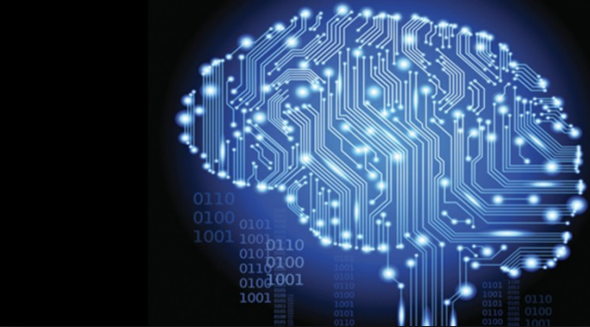
The new MIT Schwarzman College of Computing will reorient the Institute to: bring the power of computing and AI to all fields of study at MIT; allow the future of computing and AI to be shaped by insights from all other disciplines; and advance research and education in public policy and ethical considerations to help ensure that new technologies are conceived and implemented in support of the greater good.
Selected Stories
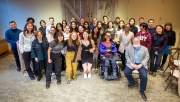
Burchard Scholars gather to network, connect, and learn
The Burchard Scholars dinner series helps create conversations between academic disciplines.

ETHICS, COMPUTING, AND AI
A responsible path to computing advances
Professor David Kaiser and Julie Shah lead initiative to embed ethical and social responsibilities in MIT's computing and advanced tech education, research, and community engagements.
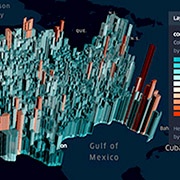
IN THE CLASSROOM
Course Profile: Data and Society
A new course in the Computing and Society Concentration, taught by Eden Medina and Sarah Williams, engages MIT students in the ethics and societal implications of data.

COMPUTING AND AI | HUMANISTIC PERSEPCTIVES FROM MIT
Computing and AI: Humanistic Perspectives from MIT
"With a sense of promise and urgency, we are embarked at MIT on an accelerated effort to more fully integrate the humanistic and technical forms of discovery in our curriculum and research, in our institutional structure, and in our habits of mind and action."
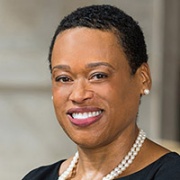
COMPUTING AND AI: HUMANISTIC PERSPECTIVES FROM MIT
Foreword | Melissa Nobles
Dean, MIT School of Humanities, Arts, and Social Sciences, 2015-2021; MIT Chancellor, 2021 —
"With a sense of promise and urgency, we are embarked at MIT on an accelerated effort to more fully integrate the humanistic and technical forms of discovery in our curriculum and research, in our institutional structure, and in our habits of mind and action. Together, the commentaries in this series offer a guidebook to myriad productive ways that humanistic, scientific, and technical fields can join forces at MIT and elsewhere."

ETHICS, COMPUTING, AND AI
Ethics, Computing, and AI | Perspectives from MIT
To support ongoing planning for the Stephen A. Schwarzman College of Computing, Dean Melissa Nobles invited faculty from all five MIT schools to offer perspectives on the societal and ethical dimensions of emerging technologies. This series presents the resulting commentaries — practical, inspiring, concerned, and clear-eyed views from an optimistic community deeply engaged with one of the most consequential questions of our time.
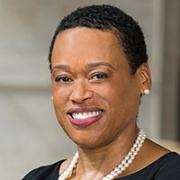
ETHICS, COMPUTING, AND AI | PERSPECTIVES FROM MIT
Foreword | Melissa Nobles
"These commentaries implore us to be collaborative, foresighted, and courageous as we shape the new Stephen A. Schwarzman College of Computing, and to proceed with judicious humility. Rightly so. We are embarking on an endeavor that will influence nearly every aspect of the human future."

MEET THE MIT BILINGUALS
Christine Soh '20 | CS/Engineering + Linguistics
With her dual degrees, Soh is prepared to make new tools in computational linguistics. Potential applications include improving speech recognition software and making machine-produced speech sound more natural.
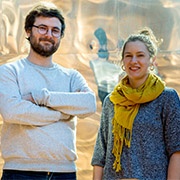
ETHICS OF TECHNOLOGY
3Q with Marion Boulicault and Milo Phillips-Brown
on integrating ethics into a technical curriculum
"The approach we are piloting at MIT is teaching ethics as a set of skills (what Aristotle would call techné). If we’re going to make a difference in whether our students make things ethically and responsibly, they need ethical skills that they can apply to their own work."

An interdisciplinary approach to accelerating human-machine collaboration
Professor’s startup brings millimeter-scale location tracking to factories, ports, and other industrial environments.
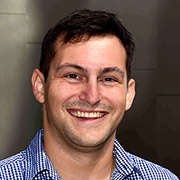
VOICES OF MIT SHASS GRADUATE STUDENTS
Meet Marc Aidinoff, PhD candidate
"What does it mean when civil rights become about access to computers and the Internet? When lack of Internet access is considered a form of poverty? These questions were getting under my skin. I wanted to know how social and economic policy were tied to changing ideas about technology."

COMPUTING AND AI: HUMANISTIC PERSPECTIVES FROM MIT
Women and Gender Studies | Ruth Perry, Sally Haslanger, Elizabeth Wood
"The Schwarzman College of Computing presents MIT with a unique opportunity to take a leadership role in addressing some of most pressing challenges that have emerged from the ubiquitous role computing technologies now play in our society — including how these technologies are reinforcing and even exacerbating social inequalities."

COMPUTING AND AI: HUMANISTIC PERSPECTIVES FROM MIT
Music | Eran Egozy
"Through the MIT Schwarzman College of Computing, our responsibility will be not only to develop the new technologies of music creation, distribution, and interaction, but also to study their cultural implications and define the parameters of a harmonious outcome for all."
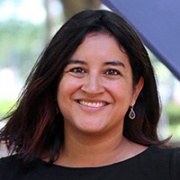
COMPUTING AND AI: HUMANISTIC PERSPECTIVES FROM MIT
Science, Technology, and Society | Eden Medina and Dwai Banerjee
"A more global view of computing would demonstrate a broader range of possibilities than one centered on the American experience, while also illuminating how computer systems can reflect and respond to different needs and systems."

COMPUTING AND AI: HUMANISTIC PERSPECTIVES FROM MIT
Philosophy | Alex Byrne and Tamar Schapiro
“The new College of Computing presents an opportunity for MIT to be an intellectual leader in the ethics of technology. The Ethics Lab we propose could turn this opportunity into reality."
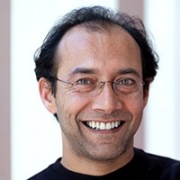
COMPUTING AND AI: HUMANISTIC PERSPECTIVES FROM MIT
Literature | Shankar Raman with Mary C. Fuller
"At least three priorities of current literary engagement with the digital should be integrated into the SCC’s research and curriculum: democratization of knowledge; new modes of and possibilities for knowledge production; and critical analysis of the social conditions governing what can be known and who can know it."

COMPUTING AND AI: HUMANISTIC PERSPECTIVES FROM MIT
Linguistics | Faculty of MIT Linguistics
“Crucially, nearly all transformative new tools have come from researchers at institutions where linguists work side-by-side with computational researchers who are able to translate back and forth between computational properties of linguistic grammars and of other systems.”
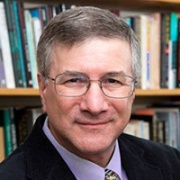
COMPUTING AND AI: HUMANISTIC PERSPECTIVES FROM MIT
History | Jeffrey S. Ravel
"The nuanced debates in which historians engage about causality provide a frame of reference for considering the issues that will inevitably emerge from new computing technologies. We may not be doomed to repeat the past if we do not study it. But we certainly miss an opportunity to imagine our way out of today’s existential threats if we do not appreciate the complexity of past crises."

COMPUTING AND AI: HUMANISTIC PERSPECTIVES FROM MIT
Global Languages | Emma Teng, with colleagues
"Language and culture learning is a gateway to international experiences and an important means to develop cross-cultural understanding and sensitivity. Such understanding is essential to addressing the social and ethical implications of the expanding array of technology affecting everyday life across the globe."

COMPUTING AND AI: HUMANISTIC PERSPECTIVES FROM MIT
Comparative Media Studies | William Uricchio
"Given our research and practice focus, the CMS perspective can be a key one for understanding the implications of computation for knowledge and representation, as well as computation’s relationship to the critical process of how knowledge works in culture — the way it is formed, shared, and validated."

COMPUTING AND AI: HUMANISTIC PERSPECTIVES FROM MIT
Political Science | Faculty of the Department
"The advance of computation gives rise to a number of conceptual and normative questions that are political, rather than ethical, in character. Political science and theory have a significant role in addressing such questions as: How do major players in the technology sector seek to legitimate their authority to make decisions that affect us all? And where should that authority actually reside in a democratic polity?"

COMPUTING AND AI: HUMANISTIC PERSPECTIVES FROM MIT
Economics | Nancy L. Rose and David Autor
"The affinity between economics and computer science traces back almost a century, to the founding of game theory in 1928. Today, the practical synergies between economics and computer science are flourishing. We outline some of the many opportunities for the two disciplines to engage more deeply through the new MIT Schwarzman College of Computing."

COMPUTING AND AI: HUMANISTIC PERSPECTIVES FROM MIT
Anthropology | Heather Paxson
"Incorporating anthropological thinking into the new College of Computing promises to help students become more effective and responsible coders, designers, and engineers. The study of anthropology can prepare students to live and work effectively and responsibly in a world of technological, demographic, and cultural exchanges."

COMPUTING AND AI: HUMANISTIC PERSPECTIVES FROM MIT
Writing | Thomas Levenson
"Computation and its applications in fields that directly affect society cannot be an unexamined good. Professional science and technology writers are a crucial resource for the mission of the SCC, and they need to be embedded within its research apparatus."
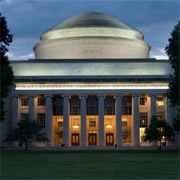
MIT reshapes itself to shape the future
Gift of $350 million establishes the MIT Schwarzman College of Computing, an unprecedented commitment to world-changing breakthroughs and their ethical application. "Faculty in a range of departments have a great deal to gain from new kinds of algorithmic tools," says Melissa Nobles, Kenan Sahin Dean of the School of Humanities, Arts, and Social Sciences, "and a great deal of insight to offer their makers.”

FAQ on the newly established MIT Stephen A. Schwarzman College of Computing
This set of FAQs offers information about the founding of the MIT Stephen A. Schwarzman College of Computing, announced today, and its implications for the MIT community and beyond.

COMPUTING AND AI: HUMANISTIC PERSPECTIVES FROM MIT
Theater Arts | Sara Brown
"As a subject, artificial intelligence (AI) problematizes what is means to be human. There are an unending series of questions posed by the presence of an intelligent machine. The theater, as a synthetic art form that values and exploits liveness, is an ideal place to explore the complex and layered problems posed by AI and advanced computing."
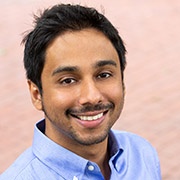
Dwaipayan Banerjee receives 2019 Levitan Prize in the Humanities
$29,500 award will support research for "A Counter History of Computing in India."

MIT HiSTORY SERIES ON DIGITAL HUMANITIES | 3
Computation and the practice of 21st-century history
In a talk at MIT, Professor William J. Turkel, PhD'04, described the techniques and tools he uses in his study of global21st-century history.

MIT HISTORY SERIES ON DIGITAL HUMANITIES | 2
Digital Zombies and Virtual Reality: Juliette Levy on history in the digital classroom
"Weekly podcasts, a virtual reality experience involving Che Guevara, and a learning game with zombies are among the digital platforms a history professor has used to enhance her teaching and make the subject engaging, especially for large classes of hundreds of students."

DEMOCRACY | ADVANCED TECHNOLOGY
Video Roundup | Selections from "Hello World, Hello MIT."
A celebration of the MIT Schwarzman College of Computing

3 Questions: David Pesetsky on the field of linguistics
Solving language puzzles, linguists shed light on deep properties of the human mind, on language acquisition in children, on machine learning, social interactions, and meaning itself. David Pesetsky, an internationally acclaimed linguistic scholar, is the Ferrari P. Ward Professor of Modern Languages and Linguistics at MIT.

MIT HiSTORY SERIES ON DIGITAL HUMANITIES | 1
Talk by Cameron Blevins launches MIT Digital History Seminar Series
“This seminar series is part of our ongoing exploration of computational methods and digital media for research and teaching in the history field. Writ large, this new series is a space for us to reflect on our engagement with the new MIT Schwarzman College of Computing" — Jeffrey Ravel, head of MIT History
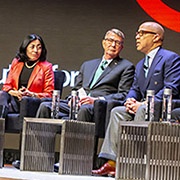
ETHICS, COMPUTING, AND AI
Making the path to ethical, socially beneficial AI
At celebration for the new MIT Schwarzman College of Computing, leaders from government, philanthropy, academia, and industry say collaboration is the key.
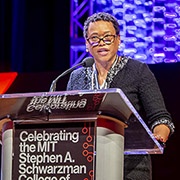

ETHICS, COMPUTING, AND AI
Welcoming Remarks | Susan S. Silbey
Celebration for the MIT Schwarzman College of Computing
28 February 2019
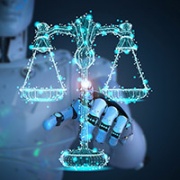
ETHICS, COMPUTING, AND AI | PERSPECTIVES FROM MIT
The Tools of Moral Philosophy | Caspar Hare and Kieran Setiya
"Framing a discussion of the risks of advanced technology entirely in terms of ethics suggests that the problems raised are ones that can and should be solved by individual action. In fact, many of the challenges presented by computer science will prove difficult to address without systemic change.”
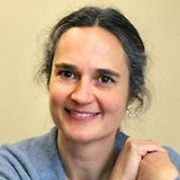
ETHICS, COMPUTING, AND AI | PERSPECTIVES FROM MIT
Computing is Deeply Human | Stefan Helmreich and Healther Paxson
“Computing is not an external force that has an ‘impact’ on society; instead, society is built right into making, programming, and using computers. The computational is political. MIT can make that recognition one of the pillars of its aspiration to help build a better world."
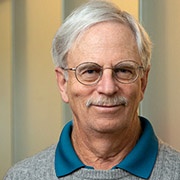
ETHICS, COMPUTING, AND AI | PERSPECTIVES FROM MIT
When Programs Become Unpredictable | John Guttag
“We should look forward to the many good things machine-learning will bring to society. But we should also insist that technologists study the risks and clearly explain them. And society as whole should take responsibility for understanding the risks and for making human-centric choices about how best to use this ever-evolving technology.”

ETHICS, COMPUTING, AND AI | PERSPECTIVES FROM MIT
Safeguarding Our Humanity in the Age of AI | Bernhardt Trout
"To meet the challenge of making AI conducive to a worthy life, we need to think carefully about what is important about human life. The new MIT Schwarzman College of Computing offers us the opportunity to provide an education in varieties of human excellence."

ETHICS, COMPUTING, AND AI | PERSPECTIVES FROM MIT
The Common Ground of Stories | Mary Fuller
“Stories allow us to model interpretive, affective, ethical choices; they also become common ground, conceptual meeting places that can serve to gather very different kinds of interlocutors around a common object. We need these.”

ETHICS, COMPUTING, AND AI | PERSPECTIVES FROM MIT
Who’s Calling the Shots on Data and AI? | Leigh Hafrey
"When the lifeblood of tech companies is user data, we must adopt a full-on stakeholder view of business in society and the individual in business, lest we cede control of our livelihoods, our identity, and life itself.”
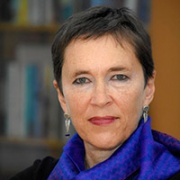
ETHICS, COMPUTING AND AI | PERSPECTIVES FROM MIT
In Praise of Wetware | Caroline A. Jones
“As we enshrine computation as the core of smartness, we would be well advised to think of the complexity of our ‘wet’ cognition, which entails a much more distributed notion of intelligence that goes well beyond the sacred cranium and may not even be bounded by our own skin.”

ETHICS, COMPUTING, AND AI | PERSPECTIVES FROM MIT
Blind Spots | David Kaiser
“MIT has a powerful opportunity to lead in the development of new technologies while also leading careful, deliberate, broad-ranging, and ongoing community discussions about the “whys” and 'what ifs,' not just the 'hows.' No group of researchers, flushed with the excitement of learning and building something new, can overcome the limitations of blind spots and momentum alone."

ETHICS, COMPUTING, AND AI | PERSPECTIVES FROM MIT
Addressing the Societal Implications of AI | Lisa Parks
"Given the power of AI tools to impact human behavior and shape planetary conditions, it is vital that a political, economic, and materialist analysis of the technology’s relation to global trade, governance, natural environments, and culture be conducted."

ETHICS, COMPUTING, AND AI | PERSPECTIVES FROM MIT
Clues and Caution for AI from the History of Biomedicine
Robin Wolfe Scheffler
"The very intractability of biology and medicine to computation makes their history an essential counterpoint to more optimistic contemporary discussions of the challenges and opportunities for AI in society. Their past underlines two major points: ‘Quantification is a processes of judgment and evaluation, not simple measurement’ and ‘Prediction is not destiny.’”

ETHICS, COMPUTING, AND AI | PERSPECTIVES FROM MIT
The Environment for Ethical Actions | T.L. Taylor
"We can cultivate our students as ethical thinkers but if they aren’t working in (or studying in) structures that support advocacy, interventions, and pushing back on proposed processes, they will be stymied. Ethical considerations must include a sociological model that focuses on processes, policies, and structures and not simply individual actors."
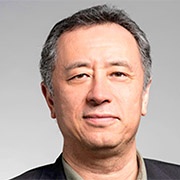
ETHICS, COMPUTING, AND AI | PERSPECTIVES FROM MIT
Biological Intelligence and AI | Matthew A. Wilson
“Understanding how innate morality arises in human intelligence may be an important step in incorporating such a capacity into artificial intelligences.”

ETHICS, COMPUTING AND AI | PERSPECTIVES FROM MIT
Machine Anxiety | Bernardo Zacka
"To someone who studies bureaucracy, the anxieties surrounding artificial intelligence have an eerily familiar ring. So too does the excitement. For much of the 20th century, bureaucracies were thought to be intelligent machines, with all the positive and negative connotations the term carries."

ETHICS, COMPUTING AND AI | PERSPECTIVES FROM MIT
Blending and Bilinguals | Hal Abelson
"When we study society today, we can no longer separate humanities — the study of what’s human — from computing. MIT’s guideline should be President Reif’s goal to 'educate the bilinguals of the future,' experts in many fields who are also skilled in modern computing."

ETHICS, COMPUTING, AND AI | PERSPECTIVES FROM MIT
A Dream of Computing | D. Fox Harrell
"We must be vigilant stewards of the future of computing at MIT. We must reimagine our shared dreams for computing technologies as ones where their potential social and cultural impacts are considered intrinsic to the engineering practices of inventing them."

ETHICS, COMPUTING AND AI | PERSPECTIVES FROM MIT
A Network of Practitioners | Nick Montfort
"The new college presents an opportunity for many practitioners of computing at MIT. We should use this chance to build a truly robust network and to make many relevant types of connections."

ETHICS, COMPUTING, AND AI | PERSPECTIVES FROM MIT
Two Commentaries | Susan S. Silbey, Chair of the MIT Faculty
Letters from the MIT Faculty Chair on teaching ethics, and on forming the new MIT Stephen A. Schwarzman College of Computing.

VOICES OF MIT ALUMNI
Abby Everett Jaques, PhD '18, on ethical AI by design
Jaques, an MIT Philosophy postdoctoral associate, is bringing the tools of philosophy to ethical questions related to information technologies.
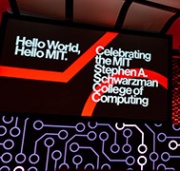
News about the MIT Stephen A. Schwarzman College of Computing
Announcements, Letters, Updates

Why do we hurt robots?
They are like us, but unlike us, and both fearsome and easy to bully.

Are home health aides the new Turing Test for AI?
Professor David Mindell asks "What does it mean for a machine to be intelligent?"

Captivating algorithms: Recommender systems as traps
There is a tendency among these systems’ makers to describe their purpose as ‘hooking’ people – enticing them into frequent or enduring usage.

Why Artificial Intelligence Like AlphaZero Has Trouble With the Real World
The latest artificial intelligence systems start from zero knowledge of a game and grow to world-beating in a matter of hours. But researchers are struggling to apply these systems beyond the arcade.
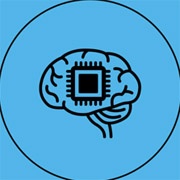
The AI boom is happening all over the world, and it’s accelerating quickly
The second annual AI Index report pulls together data and expert findings on the field’s progress and acceleration

Universal income vs. the robots: Meet the presidential candidate fighting automation
7 questions for Andrew Yang, the 2020 US presidential candidate pushing for basic income.

INSIDE THE CLASSROOM
Music technology accelerates at MIT
An increasingly popular program is drawing students eager to build — and use — the next generation of tools for making music.
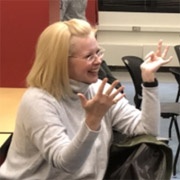
MIT student group explores the ethical dimensions of artificial intelligence.
MIT AI Ethics Reading Group was founded by students who have seen firsthand that technology developed with the best of intentions can still be problematic.

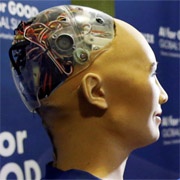
Aligning AI with basic human values
Article at Brookings discusses why it is important that each of the primary qualities of artificial intelligence accords with basic human values. "Each of the AI features has the potential to move civilization forward in progressive ways. But without adequate safeguards or the incorporation of ethical considerations, the AI utopia can quickly turn into dystopia."

Why We Need to Audit Algorithms
"Ensuring that societal values are reflected in algorithms and AI technologies will require no less creativity, hard work, and innovation than developing the AI technologies themselves. We have a proposal for a good place to start: Auditing."

AI thinks like a corporation—and that’s worrying
Artificial intelligence was born of organisational decision-making and state power; it needs human ethics, says Jonnie Penn of the University of Cambridge

MIT Open Learning launches Center for Advanced Virtuality
The new center will explore how MIT can use virtual reality and artificial intelligence and other technologies to better serve human needs.

Robot Reality Check: They Create Wealth—and Jobs
Economists say automation is the key to next boom, and the U.S. is falling behind
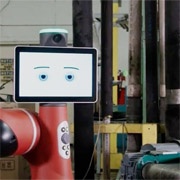
How technological innovation could amplify income inequality
"Technological advancement often brings the promise of increased efficiency in the workplace. But it also means apprehension about humans potentially being replaced by automation and artificial intelligence. In a new series, The Future of Work, Paul Solman explores the concept of 'creative destruction' and how innovation is poised to affect jobs, income inequality, mental health and more."
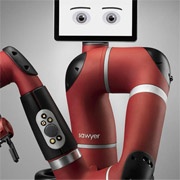
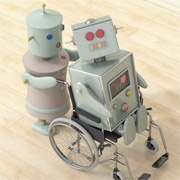
Can we trust AI lie detectors?
From the Chips with Everything podcast

Could AI predict crime?
UK police wants AI to stop violent crime before it happens
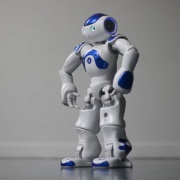
Robots could help us take care of our elderly
Our aging population could make such a future inevitable.
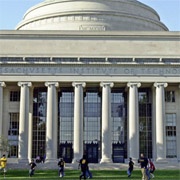
MIT to invest $1 billion in AI research
In its first fundamental restructuring in nearly 70 years, MIT announces that it will pump $1 billion into a new college focused on computing and artificial intelligence.

I think, therefore I code
Senior Jessy Lin, a double major in EECS and philosophy, is programming for social good.

ART INNOVATION | COMPUTING AND AI
Inside The Laughing Room
An AI-powered laugh track amuses and unsettles in interactive installation. A work by Jonny Sun in collaboration with Hannah Davis, Christopher Sun, and MIT associate professor of literature Stephanie Frampton, head of the ARTificial Intelligence project

Artificial intelligence hits the barrier of meaning
Machine learning algorithms don’t yet understand things the way humans do — with sometimes disastrous consequences.
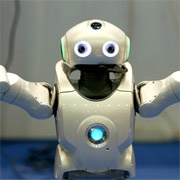
The Quartz guide to artificial intelligence
What is it, why is it important, and should we be afraid?

Exploring the future of learning through virtual and augmented reality
At a recent symposium, MIT Open Learning invited experts to discuss the power of VR and AR tools to drive engagement with education.

An AI pioneer, and the researcher bringing humanity to AI
The conscience of AI.

The World of A.I.
Judging by the breathless coverage, it can seem as if the only countries developing A.I. are the United States and China. But it’s still early for the industry and other nations are working hard to become major A.I. players.

MIT Task Force on the Work of the Future announces advisory and research boards
Leaders from industry, academia, labor, government, foundations, andother organizations, as well as leading scholars in related fields, will provide guidance.

Online hate is spreading; Internet platforms can't stop it
Media companies have not figured out what to do about the threats and abuse that pollute their platforms.
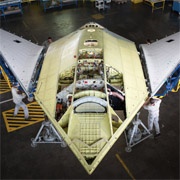
Will there be a ban on killer robots?
Without a nonproliferation agreement, some diplomats fear the world will plunge into an algorithm-driven arms race. “A lot of A.I. technologies are being developed outside of government and released to the public. These technologies have generic capabilities that can be applied in many different domains, including in weaponization.”
